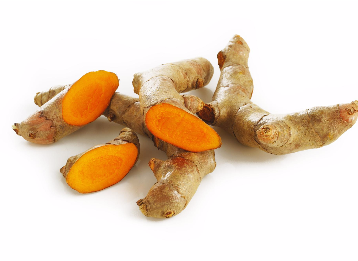Gallery, Images, Photos, Post Format, Slider, Uncategorized
7 Foods to Fight Inflammation for Post-Concussion Syndrome
7 Foods to Fight inflammation
Inflammation is a phenomenon of the body that has been documented as far back 38 AD by Aulus Celsus. Celsus’s wrote, “De Medicina“, which documents the four most common symptoms of inflammation: redness, swelling, heat, and pain. These four symptoms are our bodies mechanism of protection and healing.
With concussions, a common reaction of the body is to experience inflammation. This reaction can happen all over the body. With post-concussion syndrome, inflammation can become chronic and have a big impact on the body.
For post-concussion syndrome, it is important to aid the body’s control of this healing process. This can be achieved simply by eating proper whole foods and by including the following seven foods to keep the immune system from going out of control.
- Fatty Fish
Oily fish, like salmon, mackerel, tuna, and sardines, are high in omega-3 fatty acids, which have been shown to help reduce inflammation. To get the benefits, however, you need to eat fish several times a week, and it should be cooked in healthy ways: In a 2009 study from the University of Hawaii, men who ate baked or boiled fish (as opposed to fried, dried, or salted) cut their risk of heart disease by 23% compared to those who ate the least. Not a fan of fish? Consider fish-oil supplements.
- Dark leafy greens
Studies have suggested that vitamin E may play a key role in protecting the body from pro-inflammatory molecules called cytokines—and one of the best sources of this vitamin is dark green veggies, such as spinach, kale, broccoli, and collard greens. Dark greens and cruciferous vegetables also tend to have higher concentrations of vitamins and minerals—like calcium, iron, and disease-fighting phytochemicals—than those with lighter-colored leaves.
- Nuts
Another source of inflammation-fighting healthy fats is nuts—particularly almonds, which are rich in fiber, calcium, and vitamin E, and walnuts, which have high amounts of alpha-linolenic acid, a type of omega-3 fat. All nuts, though, are packed with antioxidants, which can help your body fight off and repair the damage caused by inflammation. Nuts (along with fish, leafy greens, and whole grains) are a big part of the Mediterranean diet, which has been shown to reduce inflammation in as little as six weeks.
- Tomatoes
Tomatoes, another nightshade veggie, may also help reduce inflammation in some people. (Of course, Dr. Zashin’s advice about what works for you, individually, applies here, as well.)
Juicy red tomatoes, specifically, are rich in lycopene, which has been shown to reduce inflammation in the lungs and throughout the body. Cooked tomatoes contain even more lycopene than raw ones, so tomato sauce works, too—and a
2012 Iranian study found that tomato juice consumption was also beneficial.
- Beets
This vegetable’s brilliant red color is a tip-off to its equally brilliant antioxidant properties: Beets (and beetroot juice) have been shown to reduce inflammation, as well as protect against cancer and heart disease, thanks to their hearty helping of fiber, vitamin C and plant pigments called betalains.
- Ginger and Turmeric
These spices, common in Asian and Indian cooking, have been shown in various studies to have anti-inflammatory properties.
Turmeric, the ingredient that gives curry its yellow color, works in the body by helping to turn off NF-kappa B, a protein that regulates the immune system and triggers the process of inflammation. Ginger, meanwhile, has been shown to reduce inflammation in the intestines when taken in supplement form.
- Garlic and Onions
There’s a good reason why these pungent vegetables are known for their immunity-boosting properties. In test-tube and animal studies, garlic has been shown to work similarly to NSAID pain medications (like ibuprofen), shutting off the pathways that lead to inflammation. Onions contain similar anti-inflammatory chemicals, including the phytonutrient quercetin and the compound allicin, which breaks down to produce free radical-fighting acid.
There you have it! These foods have been around for ages. Their health properties are well understood. If you would like to implement these foods into your diet to help control the effects of post-concussion syndrome, please consult Dr. Turner for more information.

